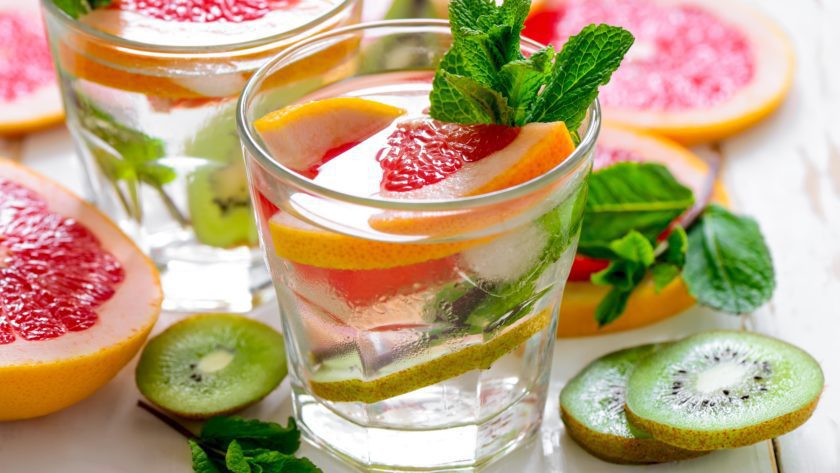UPDATE: Water not only quenches the thirst, but it’s also vital for organs to function. It’s needed for digestion, to carry nutrients and oxygen, control blood pressure, and even lubricate joints. Without enough water, skin, the largest organ in the body, can become dry and wrinkled. Do you drink enough water every day?
On average 60% of a person’s body weight is water. Water is lost during breathing when humidified air leaves the body as well as through daily urination, sweat, and stool.
In a day’s work, the body loses about 9 to 13 cups of water and all of that fluid needs to go back in.
Your blood is approximately 90% water. When you become dehydrated, your blood loses volume and your heart cannot circulate blood effectively. The eventual result is heart failure. Your blood thickens without water and your circulatory system has to work harder.
Muscle (and your heart is a muscle) is 76% water. Without sufficient water, your muscles can’t contract. That is, your heart won’t be able to squeeze out blood to your body sufficiently, you’ll have difficulty walking, and your organs will shut down.

A loss of just 2% of body weight can impair exercise performance by decreasing your sweat rate and increasing your core temperature (causing exhaustion from heat strain) and by decreasing maximal cardiac output (i.e., the highest pumping capacity of the heart that can be achieved during exercise).
Where Is Your Water Stored?
| Body part | Water percentage |
| Brain | 75% |
| Kidneys | 79% |
| Heart | 73% |
| Lungs | 83% |
| Muscles | 76-79% |
| Liver | 70–75% |
| Skin | 64% |
| Blood | 78% |
| Bones | 31% |
| Teeth | 8–10% |
How Much Water?
A good rule of thumb is to drink half your weight in ounces.
For example, if you weigh 160 pounds, try to drink at least 80 ounces of water per day, which is 10 cups. Drink more if you exercise vigorously and the weather is hot.
Diminished Thirst Perception
As adults age, the body is less able to recognize dehydration. The initial thirst signals aren’t triggered and sent to the brain. So, oftentimes older adults can become easily dehydrated.
It’s important to be constantly aware of how much water is consumed each day and especially critical when a senior is exposed to hot weather, exercise, or has lost fluids from diarrhea or vomiting.
Initial Signs of Dehydration
- Dark yellow urine (urine becomes concentrated)
- Thirst
Secondary Signs of Dehydration (Heat Exhaustion)
- Chills
- Dry mouth
- Dry skin
- Flushed skin
- Headache
- Heart Palpitations
- Irritability
- Fainting (syncope)
- Lightheadedness (especially when standing up quickly due to orthostatic hypotension)
- Loss of appetite
- Muscle cramping
- Muscle weakness
- Nausea and vomiting
- No sweating – sign of impending heat stroke!
- No tears
- Low grade fever
First aid for heat exhaustion*
- Recognize the symptoms
- Stop the activity
- Move to a cooler environment
- Rehydrate with water or a sports drink
*Heat exhaustion is best prevented by being aware of your environment (heat/humidity) and drinking plenty of fluids.
Severe Signs of Dehydration (Heat Stroke)
- Fatigue or weakness
- Confusion/disorientation
- Coma
- Seizure
- Dry skin (heatstroke victims stop sweating)
Who’s at Risk
- Infants
- Elderly
- Athletes
- Outdoor workers
- Overweight/obese
- Individuals with associated diseases of the heart, lungs, kidneys)
- Individuals taking medications that impair the ability to sweat (e.g., antidepressants, antipsychotics, tranquilizers) or cause dehydration (e.g., diuretics)
ALERT! Heatstroke is a true medical emergency. It is often fatal when not treated promptly or properly.

